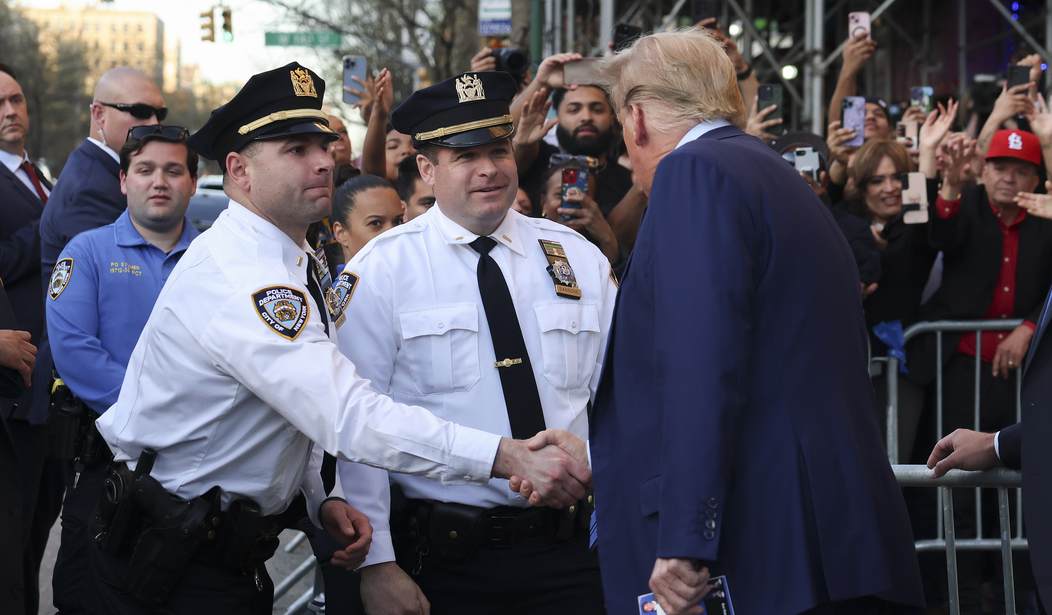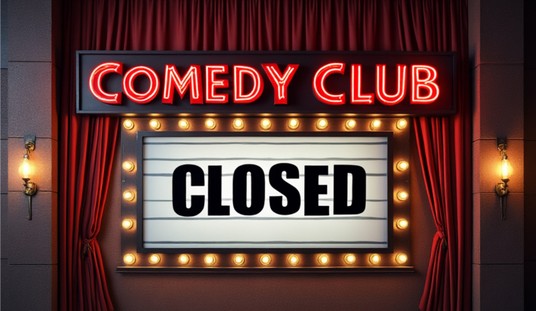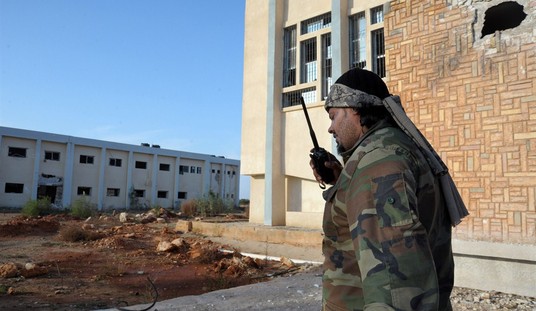Donald Trump signed an executive order on Tuesday that has America's police officers cheering.
The order aims to strengthen America's law enforcement and enable police "to pursue criminals and protect innocent civilians."
"When local leaders demonize law enforcement and impose legal and political handcuffs that make aggressively enforcing the law impossible, crime thrives and innocent citizens and small business owners suffer," the EO says.
Indeed, nothing helps a local politician more than criticizing cops after a difficult incident. The executive order won't stop politicians from demonizing the police, but it will give cops a more solid foundation for performing their duties.
According to City Journal, the order "calls for funding to boost recruitment and retention, enhance training, and expand legal protections for officers facing civil or criminal sanctions for actions taken in the line of duty."
In recent years, cities have looked to limit law enforcement indemnification, as accused officers have incurred expenses and liabilities for actions taken while performing their duties. The Trump executive order requires the "Attorney General to take all appropriate action to create a mechanism to provide legal resources and indemnification to law enforcement officers in the event they incur these expenses," according to City Journal.
The order also instructs executive agencies to pursue harsher penalties for crimes against law enforcement, which had been weakened after the George Floyd riots
The whole point of the executive order is to turn around the anti-law enforcement attitude prevalent in the Biden administration.
One of those issues, particularly after the riotous summer of 2020, is low police morale, which has contributed to the recruitment and retention crisis plaguing departments nationwide. The executive order aims to address this by boosting pay and benefits to attract more men and women to policing careers. Additionally, by calling for the provision of excess military resources and the development of best practices and training programs, the administration acknowledges that departments need more than just manpower—they need professional, well-equipped law enforcers.
Another problem is incomplete information. When it comes to controlling crime, there may be no better tool than accurate and timely data. Detailed information about where and when crime occurs is essential to successful policing, which is why Americans should be pleased to see a clause in Monday’s order calling for greater investment in the collection and distribution of crime data.
That data will make clear that there is a geographic and demographic concentration of crime. Using some crime statistics to "prove" that racial disparities exist in the enforcement of crime will no longer ignore where crimes are committed and by whom. Using "outcome-based arguments" to "prove racism" will be much harder to do.
Perhaps most importantly, the executive order will attempt to address the low morale problem that leads to so many other issues like recruitment and retention.
Over the last decade, a national narrative has cast police as villains resisting the struggle for justice. The truth is dramatically otherwise: law enforcement is largely composed of heroes who subordinate their own safety to the communities they serve. This disconnect between narrative and reality has contributed to the morale crisis plaguing American policing in the post-Ferguson, post-George Floyd era. For many who wear the badge, Donald Trump’s election last November offered a sign of hope. If his administration follows through on Monday’s order, law enforcement—and the American people—can begin to put this dark chapter behind them
It will take years to undo the damage done by the Obama-Biden administrations, whose zeal to handcuff police and law enforcement led to so many hyper-restrictive "consent decrees" that police stopped patrolling some neighborhoods in fear of being caught up in a career-killing incident.
That's not going to change anytime soon. Nor will the public's mistrust of police be fed by politicians looking for votes.
What might change immediately is that the nation's police officers will feel that someone has their back in Washington.










